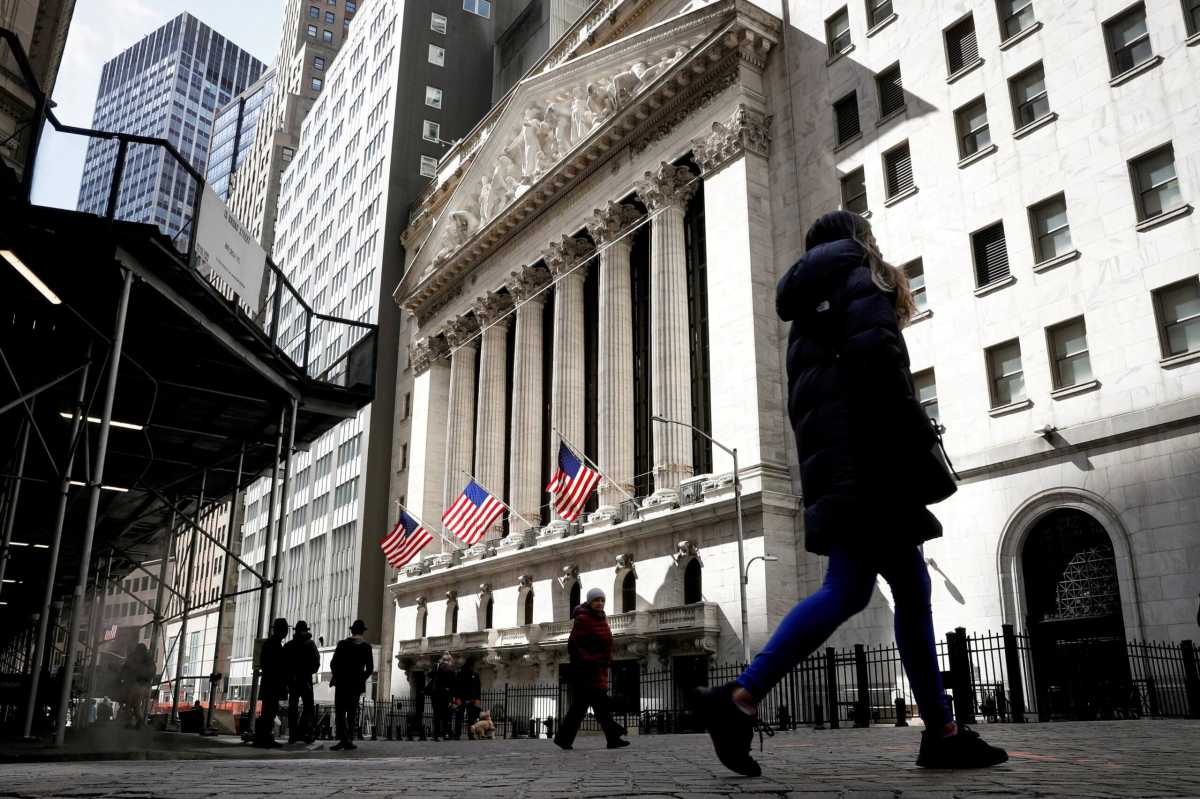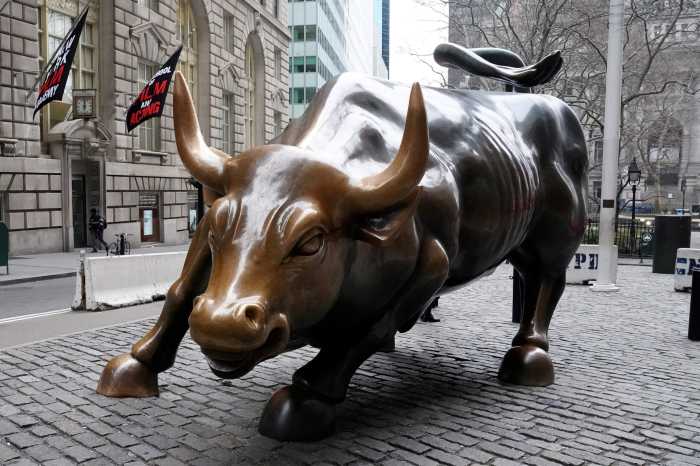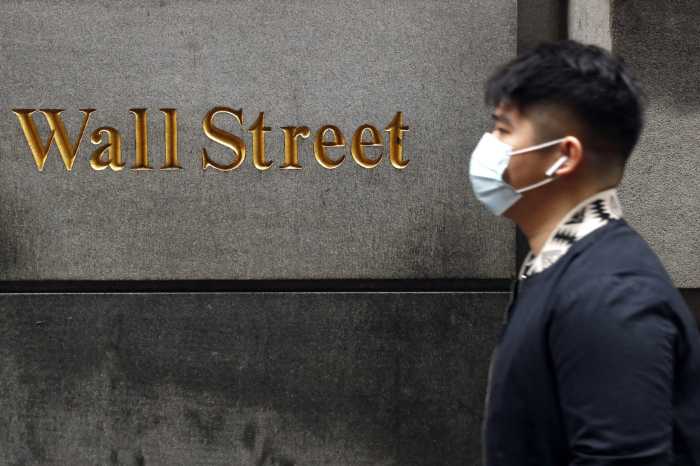Wall Street sank and European stocks suffered their worst one-day rout in three weeks on Wednesday on uncertainty over the pace of economic recovery, as the dollar pared gains following dovish remarks from a Federal Reserve official.
Accommodative central bank policies and optimism about reopening economies have pushed equities to record levels but concerns are growing about the impact of rising coronavirus infections due to the Delta variant.
The Dow Jones Industrial Average fell 0.2% to end at 35,029.19 points. The S&P 500 lost 0.13% to 4,514, with materials, energy and technology sectors leading the declines.
The Nasdaq Composite dropped 0.57% to 15,286.68.
Markets are also still assessing data from last week which showed the U.S. economy created the fewest jobs in seven months in August, and wondering how the U.S. central bank will respond.
The New York Fed Bank President on Wednesday said the central bank’s decision on tapering is not indicative of timing for lifting rates. Those dovish remarks followed comments from St. Louis Fed Bank President that the tapering plan should move forward despite the slowdown in job growth.
“Everything is tapering, tapering, tapering. We are looking at every single central bank – when is the next one?” said Eddie Cheng, head of international multi-asset portfolio management at Wells Fargo Asset Management, though he added: “The Delta variant impact is still running like a wild card”.
The Dow Jones Industrial Average fell 76.74 points, or 0.22 percent, to 35,023.26, the S&P 500 lost 7.8 points, or 0.17 percent, to 4,512.23 and the Nasdaq Composite dropped 87.96 points, or 0.57 percent, to 15,286.37 by 2:17 p.m. EST (1817 GMT).
MSCI’s world equity index fell 0.42% after seven consecutive days of gains and European stocks dropped to their lowest in nearly three weeks. Britain’s FTSE 100 struck two-week lows.
“September is the month investors confront reality,” said Peter Tuz, president of Chase Investment Counsel in Charlottesville, Virginia, pointing to uncertainty over the Fed’s tapering plans and inflation fears as a reason investors are taking profits or reallocating funds.
The coronavirus Delta variant and concerns over the economic recovery were also weighing.
A Fed report on Wednesday showed the U.S. economy “downshifted slightly” in August as concerns grew over how the renewed surge of coronavirus cases would affect the economic recovery.
“What is likely ahead of us is a continued but temporary deceleration of economic activity of one to three months which likely started in August,” Sebastien Galy, senior macro strategist at Nordea Asset Management, said earlier in the session.
Federal official Robert Kaplan was due to speak later on Wednesday.
In Europe, markets were focused on whether the European Central Bank will this week begin to scale back its bond purchase programme.
The dollar paired some gains after jumping to a one-week high against a basket of other major currencies. It also hit a one-week peak against the the single currency and was trading at $1.1826.
The dollar’s strength offset investors’ risk aversion to pressure bullion to a two-week low. Spot prices fell 0.1% and gold futures settled down 0.3% at $1,793.50. [GOL/]
Longer-dated U.S. government bond yields fell on Wednesday and touched a session low after a strong auction by the Treasury of 10-year notes and the Fed’s Beige Book of economic activity.[US/]
Germany’s 10-year Bund yield also hit eight-week highs before edging lower to -0.32%.
“Fears that central banks might start to taper their asset purchases seems to have knocked away a little confidence, particularly given tomorrow’s ECB decision where many expect we’ll begin to see the start of that process, not least with inflation there running at its highest levels in almost a decade,” Deutsche Bank analysts said in a note.
MSCI’s broadest index of Asia-Pacific shares outside Japan fell 0.71%, stemming an eight-session string of gains.
Bitcoin extended the previous day’s rout, down 1.6%.
Shares of Coinbase Global Inc dropped over 3% after the firm revealed it has received a legal notice from the top U.S. markets regulator.
Brent settled up 1.3% at $72.60 a barrel and U.S. West Texas Intermediate (WTI) crude settled up 1.4% at$69.30 a barrel, with prices supported by a slow restart to production in the Gulf of Mexico after Hurricane Ida hit the region. [O/R]






































